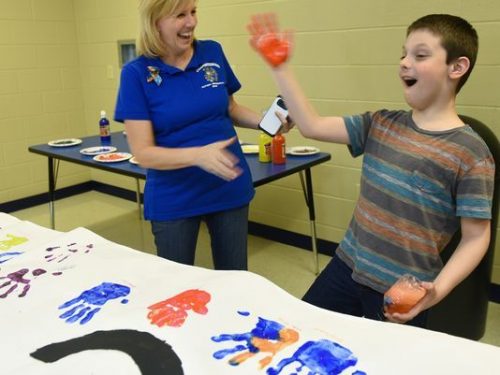Teaching students with special needs require a lot of patience and a deeper understanding of their condition. Autism is one of the most distinct and challenging mental health conditions worldwide. It is a psychological disorder which affects the brain causing it to malfunction. Autism affects social interaction behaviors that are beyond control.

If you are a Special Education teacher, it is imperative that you possess a lot of patience. Your job will never be easy, and it is essential that you love and understand what you are doing.
There are essential things that a special education teacher should know about students with autism:
- Students with autism will never initiate communication unless you have already earned their trust. Make an extra effort in reaching out.
- They have difficulty making friends, so don’t force them to be friends with everyone in the classroom as this might rather upset them. Give them time.
3. They don’t like variations. Instead, they prefer repetitive activities. Don’t force them into activities that have surprises or twists.
- They understand words literally, so use words that are precise and easy to understand. Never use idioms.
- Allow extra time. It may take longer for them to do things like reading, writing or finishing tests.
- Avoid unnecessary touch or friendly gestures like patting as this can be uncomfortable for them.
- Listen and observe carefully. Sudden outbursts could mean that there is something wrong, and they just don’t know how to tell you.
- They like visuals, so you can give your instructions through pictures rather than just telling or writing them.
- They won’t look you straight in the eyes, but that’s okay. It doesn’t mean they’re uninterested.
- There are certain sensations, like smell, sound, sight, taste or touch that could be normal but are disturbing to them. Make sure to know these things.
- They could be good at something beyond our comprehension. Identify their strength and help them progress.
12. They can be possessive. They may like things that you may not understand, like a broken toy or a piece of rock. It doesn’t matter. These things could mean a lot to them, like a lucky charm for most of us, and they would feel incomplete without it. Don’t try to take it away.
- Determine what triggers their anxiety or fear. This will help them focus more on learning because once they start to feel uncomfortable, it may take a lot of time to get them back to participate.
- They may act strange or do strange things that are normal to most people. As long as it doesn’t hurt them or anyone, let them.
15. They may have a different intonation. Familiarity with the way they speak will help in communicating with them.
A Student with autism, above everything else, is also a child. The patience and understanding that we give normal children, which is sometimes exhausting, should be doubled or tripled. Parents and teachers should be reminded of that.

Children with autism are trapped inside a body that wouldn’t act the way we do, but it doesn’t make them less. We just need to learn to love them the way they are.